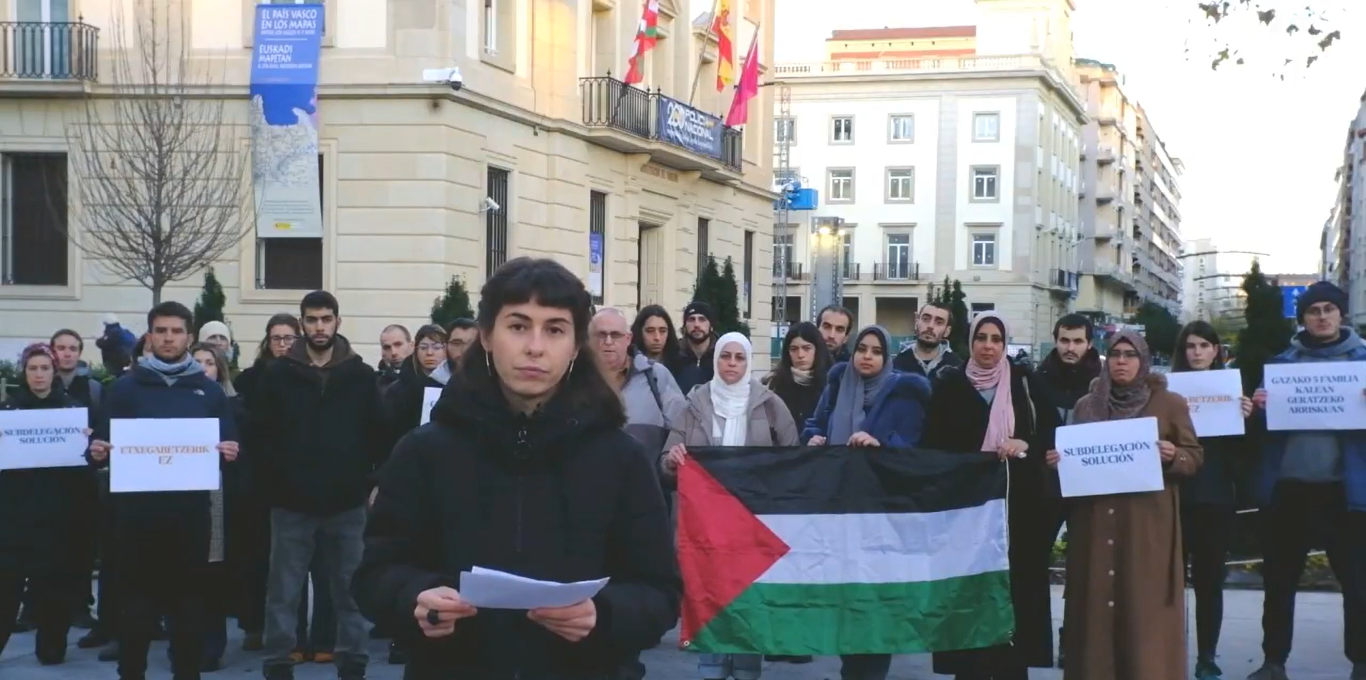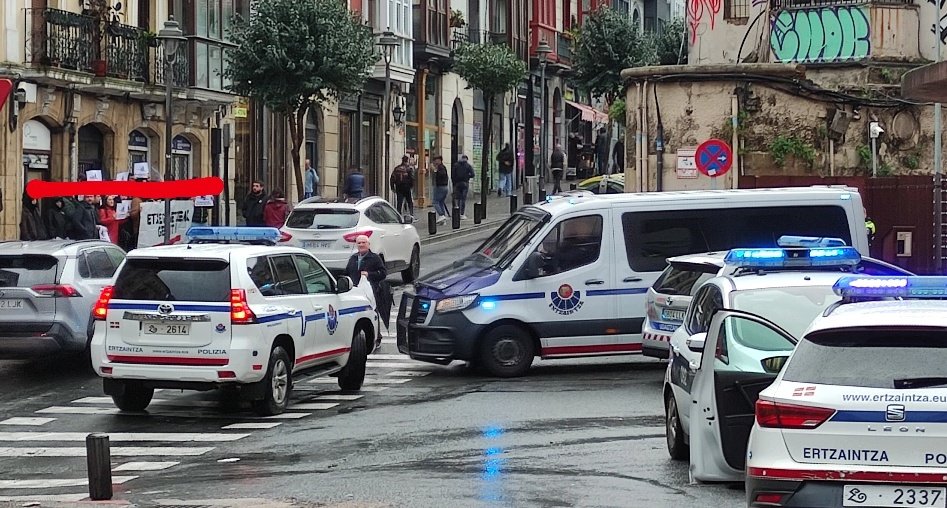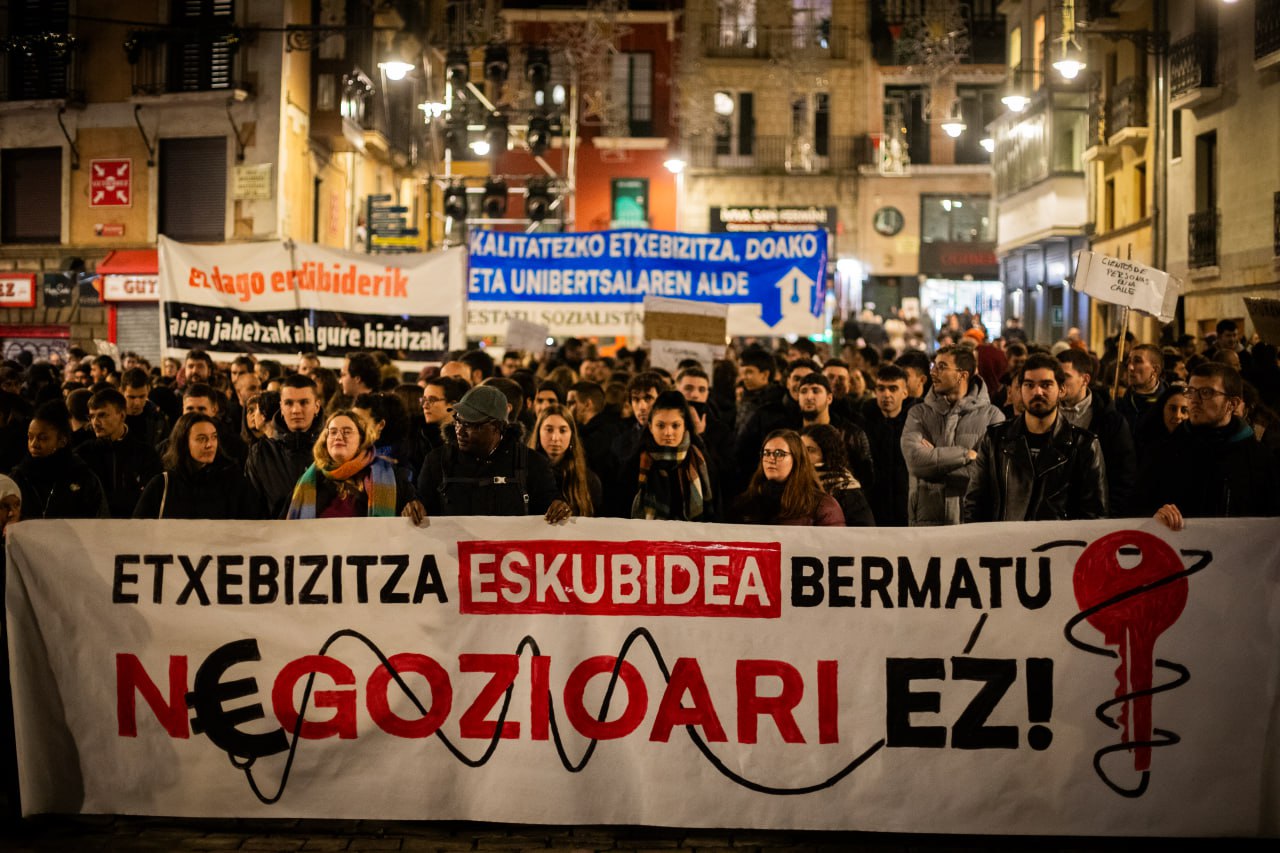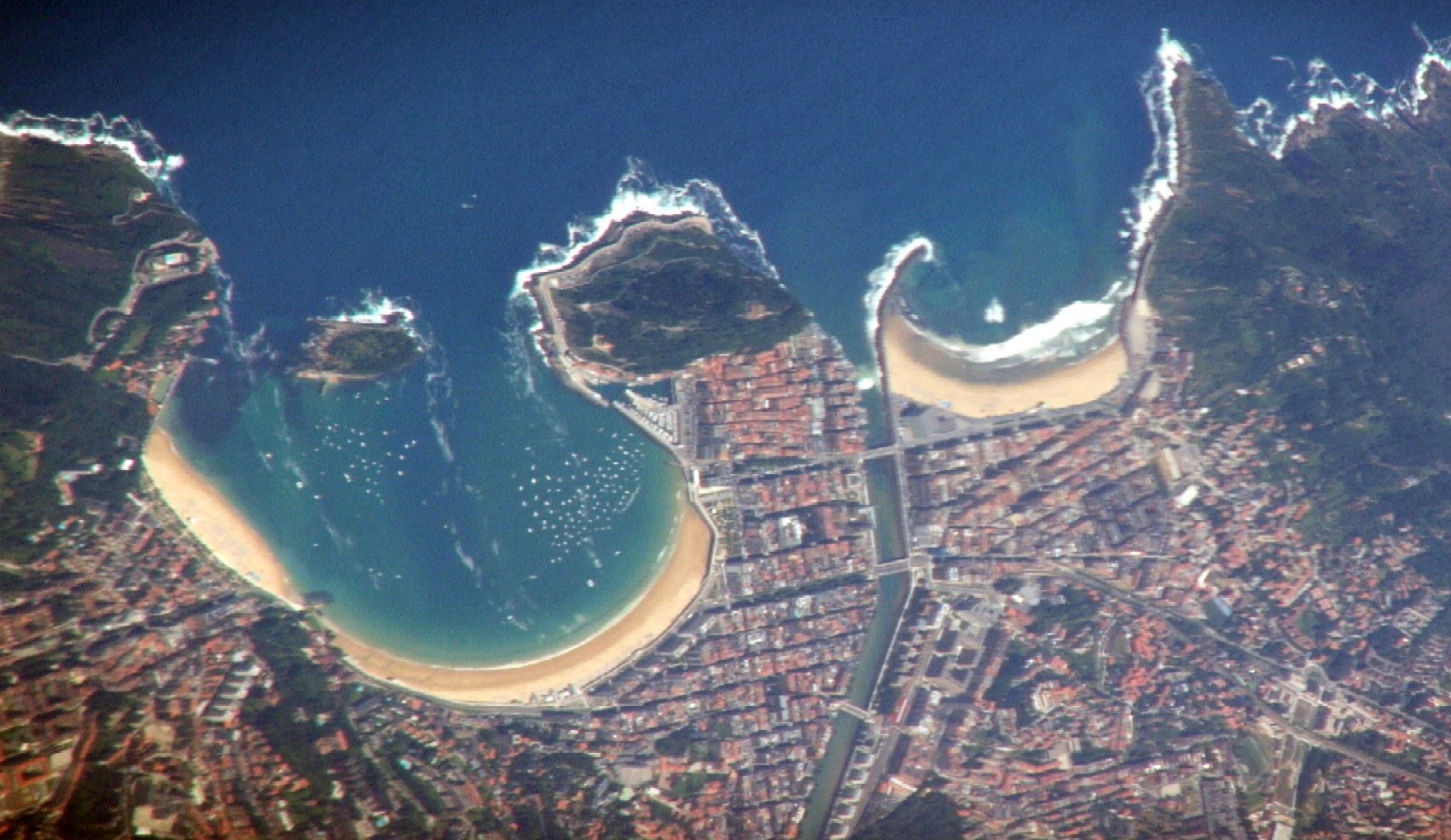The aggravation of the problem leads to the questioning of elected officials and the multiplication of protests
- Under the motto “Vivre et se loger au pays [Herria bizi eta aterpetu], no to speculation!”, a multitudinary and diverse manifestation is foreseen in the Bayonne on November 20. Elected witnesses will be asked about the “brave housing policy” that guarantees the right to shelter. The multiplication of second homes, housing for tourism, the constant increase in rent, the shortage of social housing, the artificialization of farmland and speculative prices, the description of the Basque panorama of the North.

We've lost 30 years or more. But not everything is lost. On the coast it is very difficult, but it is still possible to influence the entrecote [between the coast and the interior] and in the rural environment; prices rise, but we can influence, we do not lose the time lost on the coast”. They are words of Peio Etxeberri-Aintarako, elected and militant of the EH Bai coalition. For years we have been warning about the problem and thinking about solutions. As could not be otherwise, “Vivre et se loger au pays [Bizi eta aterpetu], a no! speculation” is one of the conveners of the demonstration to be held on 20 November in Baiona.
Dozens of agents and hundreds of citizens have called for mobilisation and probably thousands of people will join in favor of the right to housing in the working capital. Trade unions, feminist groups, agents of the social and transformative economy, cultural agents, citizen associations, nationalists and non-nationalists, the relationship of people who have joined the quotation is diverse and extensive. The problem is not new, access to a shelter has been heavy for a long time, as in many parts of the world, in Iparralde. Lapurdi's coastal problem is gradually spreading within it. Proof of this is the sale of a house in Baigorri for an amount of EUR 899,000, the announcement of which has been evicted after the concentration on 20 September in the house by the neighbours.
Etxeberri-Ainkin links the situation to the “political culture” of elected witnesses: “Borotro en Biarritz, Grenet Baiona, Alliot-Marie Donibane Lohizune… they were all conservative and with a liberal vision of the economy: to free supply and demand, consolidating the market based on it. As supply was very weak and demand was increasing, prices increased. Everything was left free, not even social housing was channeled. All this has led to a deepening of the abyss.” However, he says that by
2010 a “ttip change” was felt, provoked by the awareness of the problem, even by the encouragement of legislation. But he says it has been “too late and insufficient”, and today the situation is maintained, leaving the determination of prices to the market.
The disappearance of farmland is also the result of the fact that the path of change has not been taken sufficiently in advance. “We ask the end of land consumption, land artificialization must stop,” says OECD peasant Maryse Cachenaut. He has been involved in the occupation of Arbona. The Lurzaindia and ELB trade unions that promoted the occupation called for the mobilisation on 20 November. A single number is enough to warn of the phenomenon of the disappearance of land: In Lapurdi, Nafarroa Beherea and Zuberoa, between 2015 and 2018, 2,450 hectares of cultivation disappeared, a proportional disappearance from the city of Baiona, following official data from the SAFER structure. If we look at the data from the Urban Planning Agency, an average of 250 hectares of land per year disappear in the Northern Basque Country. The cache is clear: “If we continue to consume land, we will lose the cultivation of the place.” In this sense, he says that the urban and constructive perspective has to be radically changed so far, because this path is not sustainable. “On the part of elected officials there is a poor desire, but not only, but they have little imagination.”
Elected officials will be asked to carry out housing plans in a sustainable manner through the demonstration, i.e. to take into account the climate emergency: “The answer to the housing shortage in the continental Basque Country for decades has always been to build more. In addition to showing its limitations, this strategy is, above all, incompatible with the climatic and ecological emergencies that we must lead.” Residential rehabilitation is one of the solutions. Currently, there are 11,930 vacant homes in Lapurdi, Nafarroa Behera and Zuberoa, which are built every four years. People ' s houses are urged to systematically use the “right of challenge” to recover and revitalize empty shelters.
In this way, the organisation, together with the call for a demonstration, consults the institutions with a number of political measures: They will demand an “ambitious housing policy that demands political courage.” In fact, despite some measures of interest, in general because the Local Housing Programme, voted by the Basque Urban Helmets College on 2 October, does not guide the responses provided to the need. This document sets out the objectives and guidelines for the next five years.
EUR 4,250 per square metre and excessive rents
In 2018, the square meter cost an average of 4,250 euros per square meter, so only 30% of families had purchasing power. Biarritz is the most expensive city in Euskal Herria: EUR 6,489 per square metre (followed by Anglet 4,800 euros/m2 and San Sebastian 3,737 euros/m2). Less than 1 per cent of the population has housing capacity in this coastal city, and 41 per cent are second homes. Prices are steadily increasing, with 18% between 2015 and 2018. The containment caused by COVID-19 in 2020 has only exacerbated the phenomenon, exaggerating the complaints and despair of the citizens. Although we do not have general data, we know that at present the square metre in Getaria is EUR 7,400.
If there was a possibility of renting half of the bad, but this road is also expensive, and if today we are more second homes than rental hostels in Lapurdi, Nafarroa Beherea and Zuberoa. In the years following the 2008 crisis, the contraction of housing transactions led to an increase in rental housing due to increased demand. The trend continued unabated and Gaindegia determines that since 2014 the mortgage acquisition of a property is usually cheaper than the rental housing, although obviously the mortgage is not accepted by the bank...
"Almost every day we have been reached by someone who, with the warning of expulsion from the owner, cannot detect the
shelter" Xebax Christy
The new Alda movement, formed a year ago to respond to the needs of working-class neighborhoods, soon prioritized the right to housing. “Almost every day we have been reached by someone who, with the warning of expulsion from his owner, cannot detect the shelter. Despite the fact that the six-month period to evacuate places follows the legislation, they do not find shelter, it is impossible,” said Alda spokesman Xebax Christy. “The situation is very serious.” Rents are increasing year after year, conditions are also becoming harder (they have been asked to pay three times the monthly rent, which is required of residents outside the current reality).
The Basque College of Urban Helmets is requested to process political measures to limit rentals. This competence is the Alur Law 2014 and the Elan Law 2018, which is not yet in place in the Northern Basque Country. Although it seems absurd, in the belief that much is being built, the authorization of this measure to the Association of Basque Urban Centres was not accepted. Since the popular mobilisation of 20 November, the institution will be asked to carry out this measure.
Only one of the 6.5 requests achieves social housing
Social housing is also scarce: More than 11,000 applications are processed each year and an average of 22 months has to be rubbed to obtain an advantage shelter. Only one of the 6.5 requests gets refuge in the Northern Basque Country. In addition to quantity, price is also inaccessible to a large part of the population. There is also much to say in this area.
In accordance with the law of 2012, municipalities with over 3,500 inhabitants must allocate 25% of their main shelters to social housing. Currently, 16 municipalities (Bayona, San Juan de Luz, Capital, Bokale, Bidar, Hendaia, Anglet, Uztaritze, Urruña, Ziburu, Biarritz, Mugerre, Azkaine, Kanbo, Senpere and Hazparne) have this obligation and only Baiona fulfils its objective. “For years it was not in your interest, if it was a poor political desire. Now, despite the will, they are difficult to channel by seeing prices and quantities of land,” says Etxeberri-Ainkin.
Accommodation for emergency shelters is also scarce. Of the applicants, only 26% had hostel in 2020 and today in Ipar Euskal Herria there are about 300 people living on the street.
46,000 second homes for the year 2026 51,000
The reality of second homes is part of the problem: one in four homes is destined for it. In total, it was 42,238 in 2017, it is almost 46,000 this year and, following the Local Building Plan of the Basque School of Urban Helmets, it will be 51,000 in 2026. That is, 892 more per year. Because ours is attractive with the mountain and the sea by hand, and because with an offer of dazzling money you can access an old mansion to the wealthy.
Demonstrations and protests by elected officials, acts of disobedience, painting or fires have for years been used to stop the phenomenon of second homes.
A number of concrete measures will be called for at the meeting on 20 November. On the one hand, the bold housing tax on second residences. According to the organizers of the demonstration, in addition to delaying the owner, it could imply a higher income in the budget of the houses of the town, “from where it is easier to respond to the residential needs of the local population, producing social housing, etc.”. According to the legislation, a total of 24 municipalities are classified in “precarious situation” regarding the housing offer, all of them in Labourd, which should channel the increase of housing tax on second residences, with a maximum increase of 60%. Today, everyone is doing it and most are doing it with an increase of 60%. “They do not lead to political virtue, it is not taken as a measure against speculation. They clearly say it goes against their will, they are forced, because they are stifling the state’s results, because they need new revenue,” says Etxeberri-Ainkin. For reasons, at least, the tax on the rich materialises. Unfortunately, however, the result is poor and the need to go further is clear.
In the same vein, they also ask for a random increase in exchange tax. Currently, the tax is around 5% when it passes from main residence to secondary residence. “These measures exist, they must be put into practice decisively. And we'll have to invent others. What seems utopian, in the end, becomes feasible if you try,” says Etxeberri-Ainkin. The second house tax was developed by him and the proposal was transferred to the French Parliament by the illustrious Socialist Member Sylviane Alaux in 2014.
The desire to influence the people and the people is a constant on this day of confinement
Christy also considers it essential to mobilize people to force them to take further action. “We don’t have effective tools to fight the second homes, so we have to activate citizen mobilization, establish a strong relationship in our favor and press, convince the institutions.” Throughout the world, they have taken a number of political decisions by area. For example, Switzerland has limited to 20% the number of second residences and in the Italian region of Bolzano have created a “resident status”, limiting the option to buy to residents for a relatively long period. However, the Association of Basque Urban Helmets does not have competence for the creation of this Statute: It should be channelled at the level of France, and Paris responded negatively to this request by cortsic abertzale, stating that it goes “against the Constitution”.
In the sights of Airbnb alda
Housing for tourism must also be taken out of the offer. Following the account made by the association Alda, Lapurdi, Nafarroa Beherea and Zuberoa has between 6,000 and 7,000 hostels throughout the year for short-term rentals, and more than 120 days a year rented to tourists are 10,000. Obviously, the fact of allocating hostels to tourist rentals through services such as Airbnb, Booking and Abritel does nothing but increase the problem, as thousands and thousands of homes are excluded
Alda joins the fight against this phenomenon by performing symbolic occupations. “We saw that we had a chance to change the situation with a certain speed, if the Basque School of Urban Helmets made some decisions.” The association has requested two measures from the institution, giving a deadline until the end of the year. On the one hand, the request for authorization to the City Hall for the change of use of the residence is addressed not only to the private ones, but also to the companies (to avoid this procedure there are many owners who have created a company). On the other hand, it is called compensation for the unrest: in order to be able to use a refuge for tourism, the owner must allocate another to house the whole year. Since permits must be completely renewed three years, in successive periods many could not continue on platforms such as Airbnb, Abritel or Poplidays, because they could not secure compensation. “We have the opportunity to recover hundreds and surely thousands of hostels.” In this way, Alda sees the possibility of re-increasing the supply of housing for the whole year and, at the very least, stop the continuous increase in prices.
The representatives of the College have shown openness to these two requests. Christy says he is a family of “rapid political will.” The General Assembly of the College on 24 July discussed the problem of hostels for tourism throughout the year. We voted unanimously in favour of the creation of a service to increase the control of the sector, with the clear will to create tools to guide the phenomenon to the other side. It remains to be seen what exactly the college is going to propose in the proposal that they should now communicate at the end of the year. With the protest of 20 November, the organisers intend to make this claim heard. How not, Alda is also among the organizers of the demonstration.
Alert the population of Arona
In addition to the questioning of the elected representatives, the desire to influence the people and the people is enormous, even more so on the day after the confinement. Initiatives to denounce the housing problem have multiplied. The windows of the real estate companies have also appeared painted several times in recent times. The road to occupation is also gradually opening up. The Izan BAM movement in the area of Baiona-Biarritz and Anglet, the Gazte Ekintza, the Alda movement, the new team of Bizi!, the Bost group, formed in Arbona, the occupied house of Hazparne, the movement that is materialising in favour of the growing lands in the area of Kanbon Marienia, have flourished.
“The Bost collective was born as a group promoting the occupation of Berroeta in Arbona. But the struggle goes on. We will continue to curb speculative land projects with direct action”, a message that launched some thirty citizens on the last day of the occupation, above the Tarima and from Lurrama. An open meeting was also held in Baigorri a few weeks ago, where nearly eighty people from different villages met. Three agreed objectives were established: to act against speculative sales through popular mobilizations and to inform the public; to introduce different initiatives; and to train legally to better understand what legislation brings and also to use this path in the need. The different dynamics are intertwining, and proof of this is that on 3 November several dozen people met at the Kanbo assembly.
At the local level, if there are people who follow closely what happens in the village. This is quite new, or at least it already existed, in the last year monitoring has been developed and intensified. If the homes are bought by the wealthy, because the neighbours sell them: the logic of speculation is given by the seller just like the buyer. Despite the extreme contradiction, there can also be the case of leftist nationalists, either speculating on the sale of housing or placing the refuge on the Airbnb, Abritel or Poplidays platforms year-round. “There are enthusiastic Basques who see the fate of the earth or the possibility of speculating with a good. They're not called Martin or Dupont, they're called Etxexu. From a monetary perspective, there is no nationality, no vasquism, no political conscience”, regrets Etxeberri-Ainkin. Since it could not be otherwise, not all foreign buyers are considered rich speculators and this determination considers it important for an open Basque country.
Christy sees the need for in-depth work to change mentalities: “In each case, from a particular point of view, each has an explanation to explain his decision... But the truth is that they all guide the global phenomenon.” Another task is to raise awareness of the problem and the responsibilities of each.
“During these four months of occupation nothing has changed, the problem persists. However, one thing has changed: we are keen to change the situation and the cry has more impact on society and among the elected officials,” says Cachenaut. The wealthy purchaser rejected the idea of buying the 15 hectares of land from Arbona and the related housing by EUR 3.2 million. On September 9, ELB and Lurzaindia reported the decision to seize the achievement and stop the occupation. Main cause: Like that of bicarbonates, speculative sales exist at any time and place, and they have to retain strength to fight other cases. For example, Kanbon Bouygues is drawing together with the Cade and Nahi Dugu Herria associations the struggle to recover four hectares of land purchased at a price above EUR 3 million.
There is no doubt that there will be speculative transactions, there are no changes in the general trend of the family. But at the same time he is more of a citizen than ever before, with the determination to act against the problem. This can change course.
The poor management of the Valencian cold drop has led to a change in adverse meteorological alerts, as shown in the first season of "winter". Faced with the threat of rivers overflowing in Hego Euskal Herria, the indications for protection came along several paths, since no... [+]









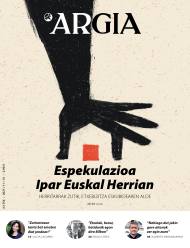

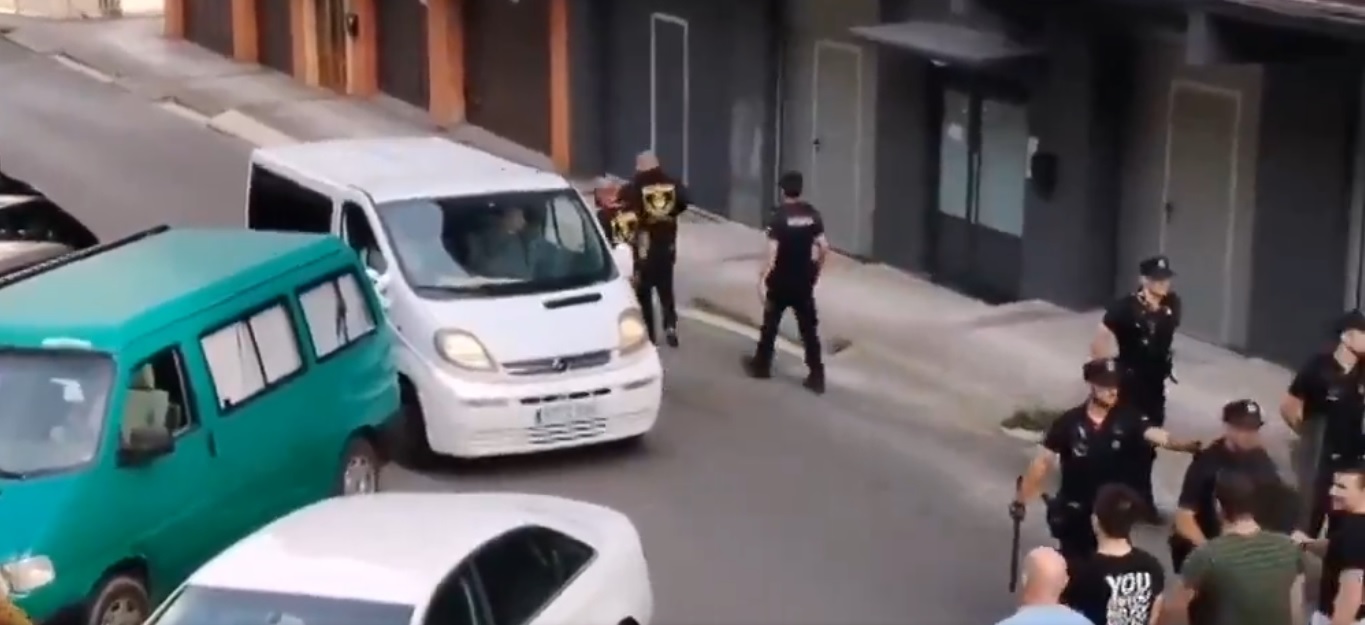

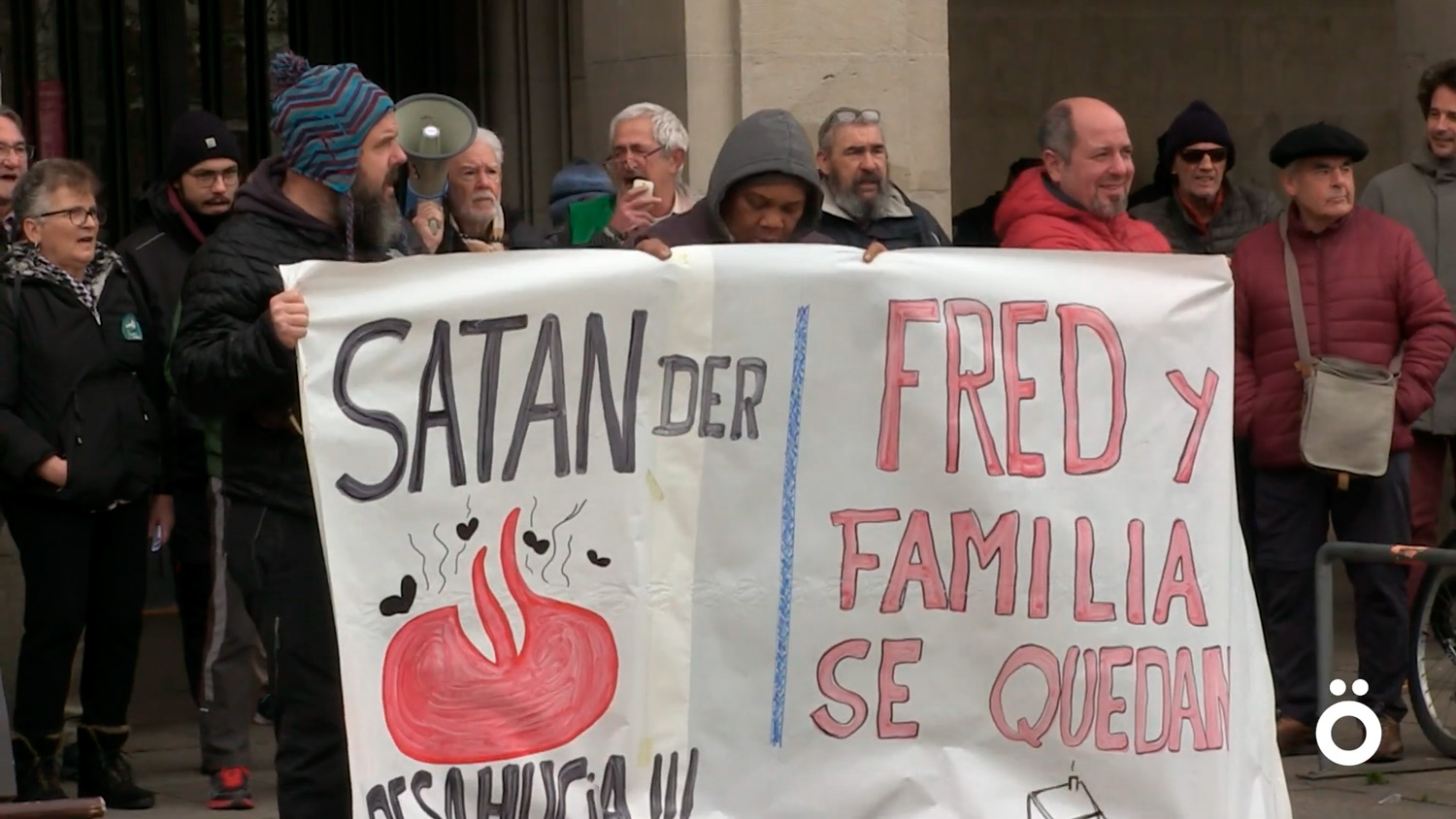
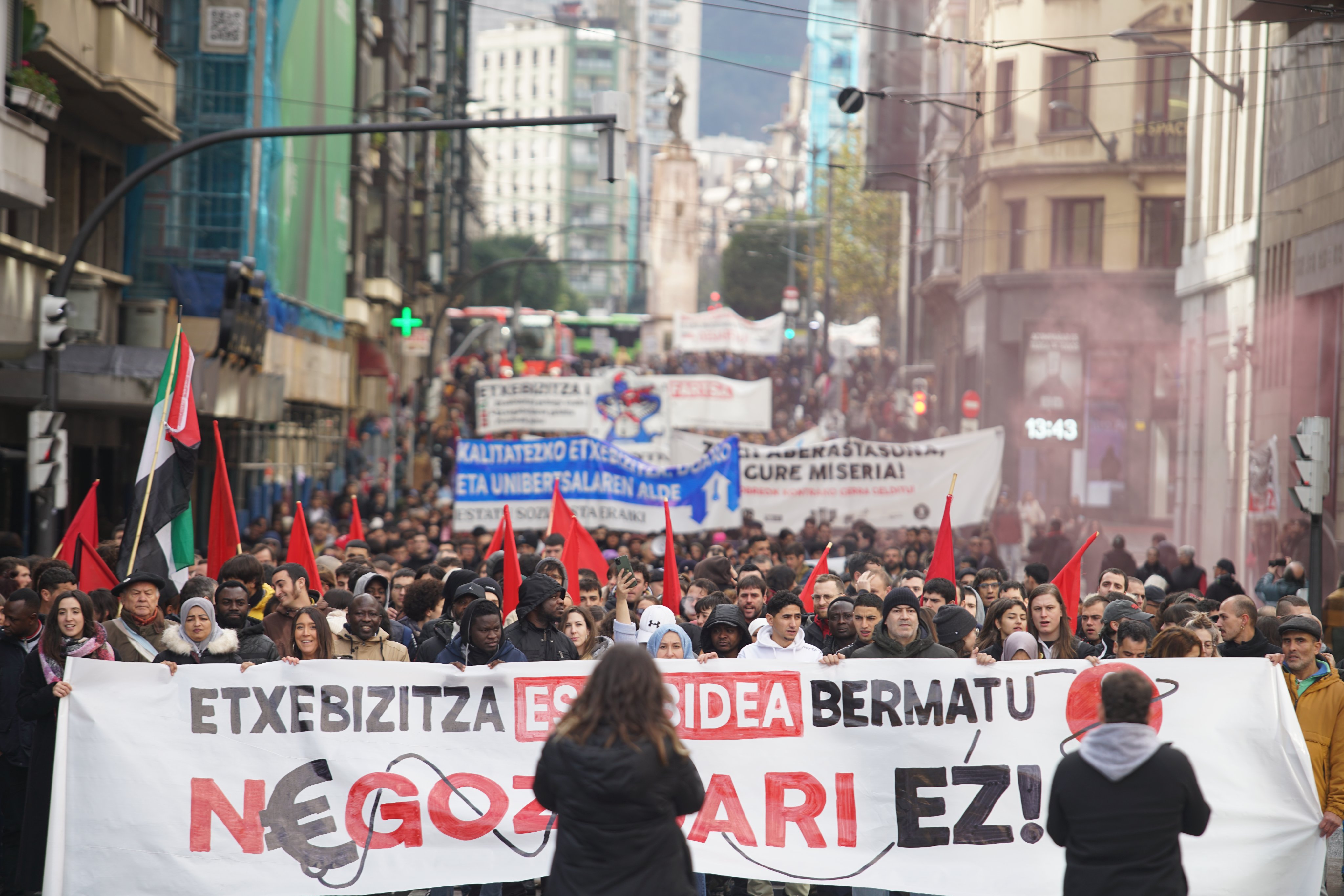

.jpg)

